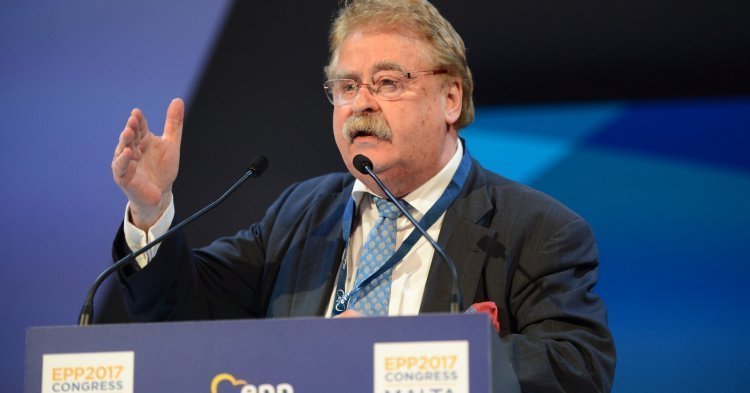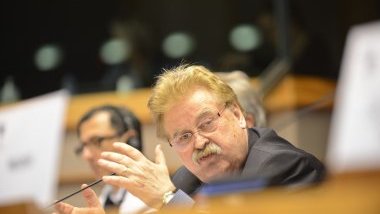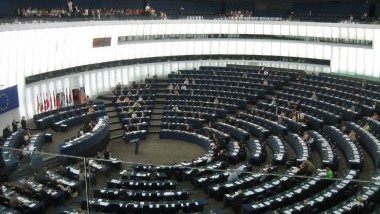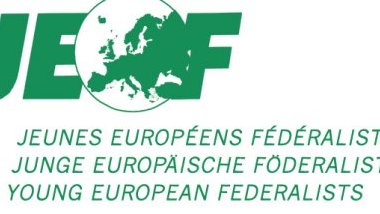Last Wednesday you voted against the introduction of transnational lists in the 2019 European Parliament Elections. Would you vote again in the same manner now, after all the criticism you received from pro-European associations?
Elmar Brok: Yes. I have always been against transnational lists because of a strong, personal conviction and I have always reiterated this. I do not know a single federal, national Constitution that envisages lists on a national level. And that happens for a good reason: transnational lists are a sin against federalism. The democratic legislation is made above all by being close to the citizens, i.e. the voters. I want to be on the list for election in my own region, in Ostwestfalen-Lippe, and not on some list between Helsinki and Lisbon, where no citizen sees me as a representative. I think that citizens must vote in their own constituencies, in their own regions, and that this brings us in the European Parliament where we try to find common European interests. I have always fought for Europe out of conviction, even against my own party.
Did you vote against the lists because the current system has clear advantages for the EPP, and because of your fear that smaller parties will win votes as a result of transnational lists?
No one can accuse me of party dependence. I belong to a party that since 1946 under Adenauer has fought for Europe. I belong to a party that has continued this with Kohl and Merkel. The UEF has to bring all pro-European parties together, otherwise, it will become redundant.
This suggestion which was approved in the Parliament in its unclear wording would have unfairly favoured the large Member States, as their parties will have asserted themselves during the making of the lists. On these lists, there would be exclusively politicians from the large states on the first four or eight places. That would mean at least three more seats for Germany. CDU would, as a result, have certainly won a seat more. I cannot support this as a federalist!
The European People’s Party has always advocated a Spitzenkandidat process. Many heads of government have spoken against that, because this increases the power of the European Parliament and by that the power of the citizens. Transnational lists, on the other hand, do not change the power of the Council. The 27 seats divided to the different parties do not influence the majority of the European Parliament. Or the 705 MEPs directly chosen by the citizens do not count according to the rejected model?
Before the state election in Saarland 2017, the CDU Saar, on the request by treffpunkteuropa.de, agreed to the statement that transnational lists should be introduced in the Euromat before the election, but the CDU stated to be neutral to this statement. Why have now CDU MEPs now voted against that?
CDU MEPs no longer follow instructions from Berlin or Saarbrucken and have shown in the long debates, just as the Europeans People’s Party has, their understanding of democracy. Only our Spanish friends voted for transnational lists. An irrelevant remark for that is that President Rajoy wanted to thank the French President Macron for his stance on the case of Catalonia.
This suggestion is contentious for all parties. It is true that almost all MEPs of the EPP have voted against it. However, there are still colleagues (in part in significant numbers) from S&D, ALDE, GUE/NGL and the Greens, that were not against it. It is a problem of the European Parliament that voters only rarely have knowledge of, and access to, our work. That weakens our legitimacy. For this reason, I only support an electoral system which continues, as it had, to regionalise elections.
An important argument of the conservatives in the European Parliament against transnational lists was that these lists were pure officials’ lists and that they would create distance from the citizens. Does not this statement hold water for the current electoral system?
The EPP is the Christian-democratic party of de Gaspari, Adenauer, Schuman and Kohl. The European People’s Party is a centrist, not a conservative, party.
In the parliament I represent politically the voters from my constituency and through my election the entire European electorate. For every statement, endorsement and vote in parliament, I have to stand before the European voters and the voters in Ostwestfalen-Lippe. Transnational lists contribute to increased distance from the citizens because these 27 possible MEPs between Helsinki and Lisbon are suspended in the air, not right there where the citizens are, not in their everyday lives. And that’s what I want. Only when MEPs go shopping in the supermarket, when they use public transport or go to restaurants in their constituencies, are they reachable for the voters, and thus proximity to the citizens is created. Helsinki and Lisbon are very beautiful cities, however, you don’t see me there very often. I’m surprised that you turn transnational lists into party politics. I would like to make it clear one more time: look at the voting record of the numerous MEPs of the other parties. Analyse for your readers the entire voting record of the European Parliament.
Which alternative would you suggest in order to secure a higher turnout at the European Parliament elections? Do you consider compulsory voting a good idea?
The general, free and equal voting rights is an achievement of the last century. Earlier generations have fought for that. The opportunity to vote is a privilege that we all should consciously exercise.
However, I do not support the introduction of compulsory voting – voting cannot be an imposed duty. Firstly, it cannot be a solution for the low turnout for the European Parliament elections. In addition, we cannot forcefully try to create a collective motivation for voting in a free system. It is only important that every vote counts.
Irrespective of this, do you seriously believe that transnational lists, which are not in touch with the people, can increase the electoral turnout? The Spitzenkandidat process on the contrary, which the EPP introduced with the Treaty of Lisbon, opens a significant Europe-wide discourse. The citizens must know that they with their vote choose the next European head of government. In every parliamentary democracy, and therefore also in Germany, this that determines the turnout. We have amended the EPP statutes so that in November 2018, a Spitzenkandidat has to be elected at a party conference. Afterwards, we will present them Europe-wide. Additionally, we will provide a Spitzenkandidat for a Europe-wide programme. Do you know for example what President Macron wants? The European Council and its members may not undermine the Spitzenkandidat process, which is “constitutionally” prescribed.
How can the EPP pursue a pro-European policy in the EU parliament, when MEPs from the national-conservative Fidesz party belong to it?
The political parties in the European Parliament are an assembly of directly-elected MEPs who are bound by a common set of values and vision for Europe. The EPP party proves on a daily basis, yes daily, that it pursues a pro-European policy. Exactly like Commission President Juncker and Council President Tusk.
Nevertheless, it is important to speak up against your own party in case of anti-European remarks. Recently, I had to endure more criticism and personal insults because I criticised political developments in Poland and Hungary. It would be nice if the Socialists would be warmer to their Bulgarian and Romanian friends, just as we approach the MEPs from Hungary.
For the French President Macron, the introduction of transnational lists would have been a fulfillment of an important election promise and thus a domestic success. Now you as a conservative have stopped his political success in Europe. Are you afraid of a pro-European solo effort from France?
Again: I’m not a conservative. Besides, the EPP is not there to keep a French election promise. Pro-European policies in the Member States have my greatest support. Europe does not exist because of treaties. It exists because of the European idea in the hearts of the citizens and their national governments. If Macron’s success depends on the transnational lists, then good luck to him. But you cannot really say that about Macron’s course. I think that in a unified Europe going on your own is invariably bad, even if Germany does that.
To what extent is the coalition agreement - if it does not fail because of the SPD member vote - actually a “new departure for Europe” and a yes to Macron’s ambitious European policy?
The coalition agreement sets the framework for the future German government. The course of the German government will be energetically pro-European. A strengthened France is welcome for Germany because through that leadership and burden will be further redistributed.
The German policy makes far-reaching proposals on the issues of internal and external security and the social and economic consequences of globalization. It, therefore, advocates an increased EU budget for the coming financial period and a future investment budget. An important point is also a parliamentary controlled European Monetary Fund under EU law. Measures against tax avoidance are also very important. At any rate, German policy will not support the division of the Eurozone and the other Member States, including an institutional. All of these proposals and positions are to a large extent compatible with the Bresso/Brok report of the European Parliament, the proposals of the European Commission from the December 6 and with many proposals by President Macron.






Follow the comments: |
|
